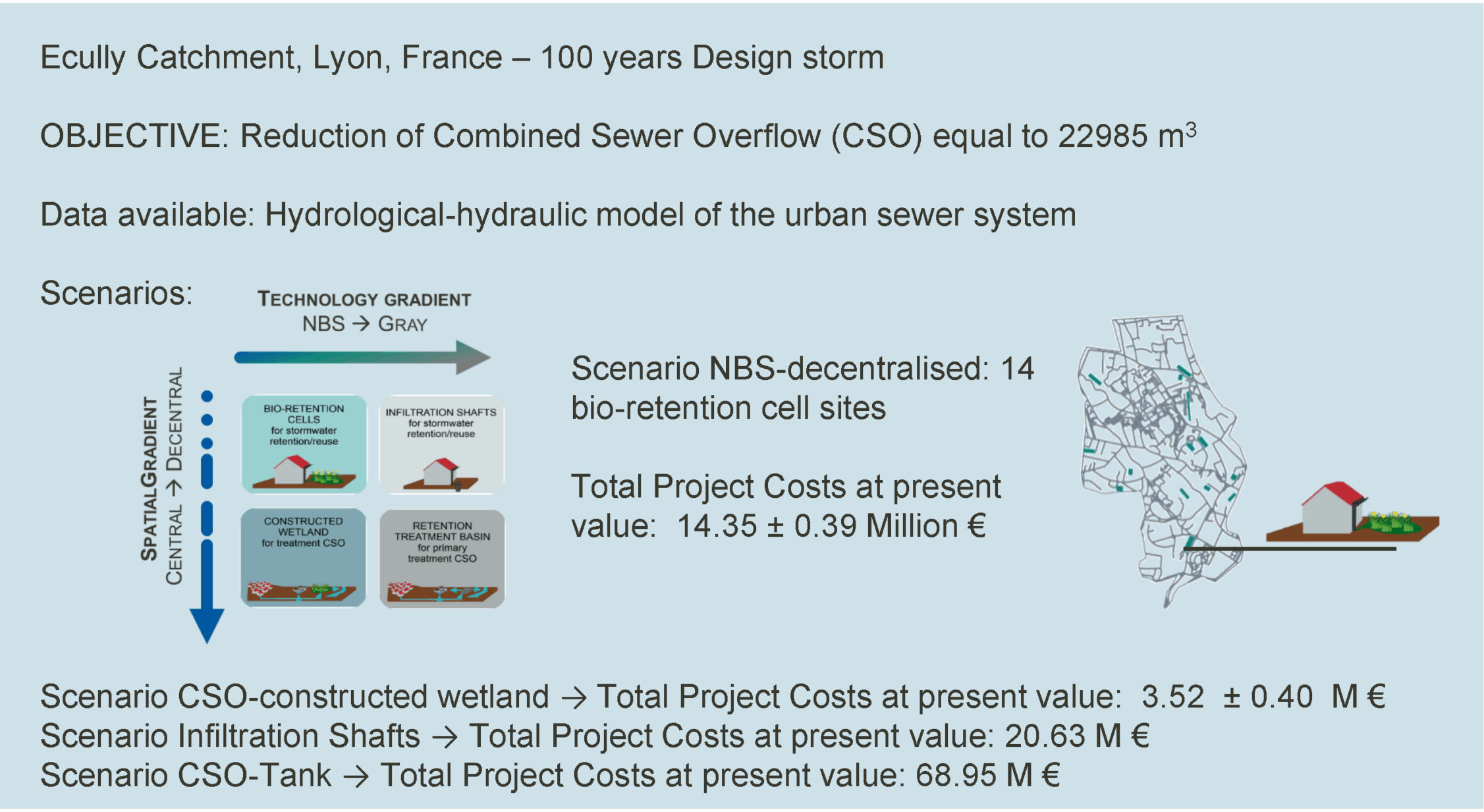Planning Platform
Cities across Europe are facing growing challenges in managing stormwater due to increasing urbanisation and extreme weather events. Upgrading existing sewer infrastructure to cope with these pressures is onerous, hence, innovative and cost-effective solutions for urban stormwater are in demand. The MULTISOURCE Planning Platform aims to facilitate the planning of stormwater management strategies through the use of open data.

The Python-based tools have a modular structure and can be applied and adapted to different European cities, assisting planners in achieving specific stormwater management objectives while taking into account local constraints.
Where would NBS be more effective?
Decentralisation Potential
The decentralisation potential for Nature-Based Solutions (NBS) indicates in which locations NBS should be implemented to have a greater effect on the urban catchment and reduce the number of construction sites.
Case study – Test application for the Ecully Catchment, France.

Spatial-economic stormwater scenarios
It provides decision-makers with space requirements and project costs* to select the best strategy for their urban environment. Scenarios with the implementation of nature-based solutions are compared with traditional grey infrastructure.
* The LCCA Cost Module (Life Cycle Cost Assessment) calculates the total project costs at present value, which is the sum of all discounted infrastructure project costs, including operation, maintenance and reinvestment costs, over a 20-year lifetime.
Case study – Test application for the Ecully Catchment, France.

Case study – Opera, Metropolitan City of Milano
It is applied the data-reduced approach based solely on open data. Monitored data of CSO discharges are needed to set-up the Hydraulic Disconnection Module.

The Python-based tools are partly already available as open-source software on GitHub and GitLab. Cities wishing to improve their stormwater strategies and conduct a pre-feasibility study to understand the potential for decentralised solutions can contact us (Jan Friesen jan.friesen@ufz.de| Maria Chiara Lippera maria-chiara.lippera@ufz.de) or consult the City Office website or contact stadtbuero@ufz.de



